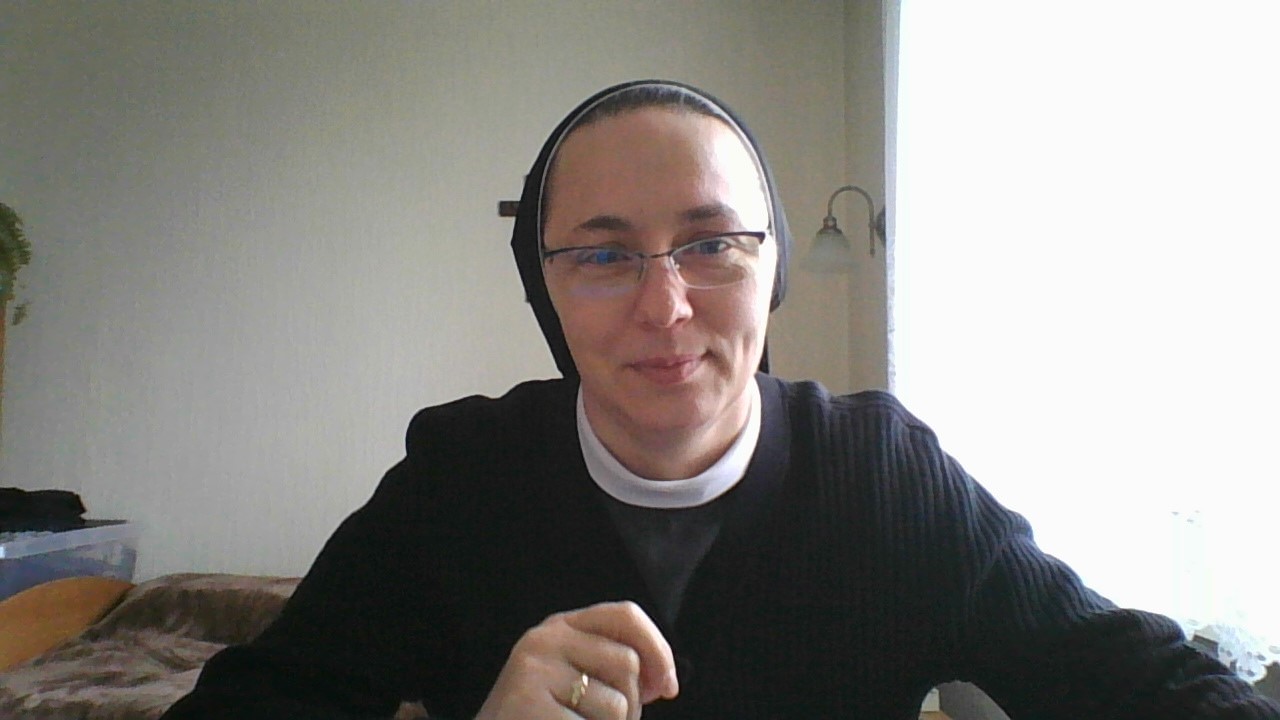During one of the meditations on the text from the Gospel according to St. John, I noticed the sentence written there: “And there was a division in the crowd because of him” (Jn 7:43). This Word has worked in me in the context of the Year of Unity that we are currently living in our Congregation. I saw the unity and divisions running through the history of salvation, through the history of mankind, through every human heart. I saw the great desire of Jesus himself expressed to the Father in a prayer shortly before the Passion “that they may all be one, as you, Father, are in me and I in you, that they also may be one in us, so that the world may believe that you have sent me. ”(Jn 17:21). The unity of the disciples is an eloquent testimony of God’s love for man. About the Love which knows “what is hidden in man” (Jn 2: 25b) and tends decisively towards “gathering the scattered children of God into one” (Jn 11:52). Likewise, our unity in the communities and the works we conduct is a testimony to God’s presence here and now.
This great desire for unity includes the truth about sin, which has been divisive since the dawn of human history (Gen 3: 1f). It separates man from God. It causes discord even among the people closest to each other. It destroys harmony with nature and touches the very heart of man, making in it a deep rupture of original sin first, and with time personal sins … Often, external divisions are only an image of what is happening in people’s hearts, souls and minds. St. Paul writes about how sin influences the way we think: “Because, although they knew God, they did not worship Him as God or thanked Him, but vanished in their thoughts and their mindless heart was darkened. Claiming to be wise, they became fools ”(Rom 1: 21-22). At the same time, the same Apostle grieves over his inner tear despite all his devotion to the service of the Gospel: “Wretched man I am, who will set me free from the body that leads to death?” (Rom 7:24). In these words, he recognizes his own sinfulness, not only from the first stage of life as a zealous Pharisee, but also after joining the community of the Church. How much humility there, how much truth …
During my biblical and life reflections, the words from the Letter to the Ephesians came to my mind about the two races of humanity divided by the wall of hostility which Jesus thus broke down, making us one (cf. Eph 2: 14-16). And though it speaks of Jews and Gentiles,
The inspired word is up-to-date and also applies to modern man, and it is you and me. Hostility, fueled by fear – most often for oneself, resentment or lack of forgiveness, still makes it difficult to build good interpersonal relationships on which unity is based. This also applies to the relationship with oneself and also with God.
The one who heals the wounds of our broken hearts and does not extinguish the wick with a faint flame (cf. Is 42: 3), who teaches to build bridges instead of building walls is Jesus Crucified and is risen. His Heart is also hurt, but because of our sin – mine and yours. He allowed himself to be hurt, pierced, opened. And just like to St. Tomas, he also addresses us with an invitation: “Put your finger here and see my hands. Lift up your hand and put it to my side, and do not be an unbeliever but a believer! ”(Jn 20:27). And faith works miracles. Miracles happen today. Unity in diversity is also one of these miracles. Touching the Heart of Jesus, staying with Him, immersing ourselves in Him, we experience the healing of our divided hearts and … we fulfill the will of Father Founder: “Strive for unity.”
The Mother is closest to the Son’s Heart. It was under her Immaculate Heart that the human Heart of God was shaped, uniting two so different natures. Therefore, let Mary, who is also our Mother, the Mother of the Church, obtain for us the grace of internal unity, that is, unity with God by living in grace – in freedom from sin, especially the deliberate, planned, and willed one. May she also obtain for us the gift of unity with people, of sisterhood through “God’s love poured out into our hearts through the Holy Spirit who has been given to us” (Rom 5: 5).
Sr. M. Michaela Musiał

